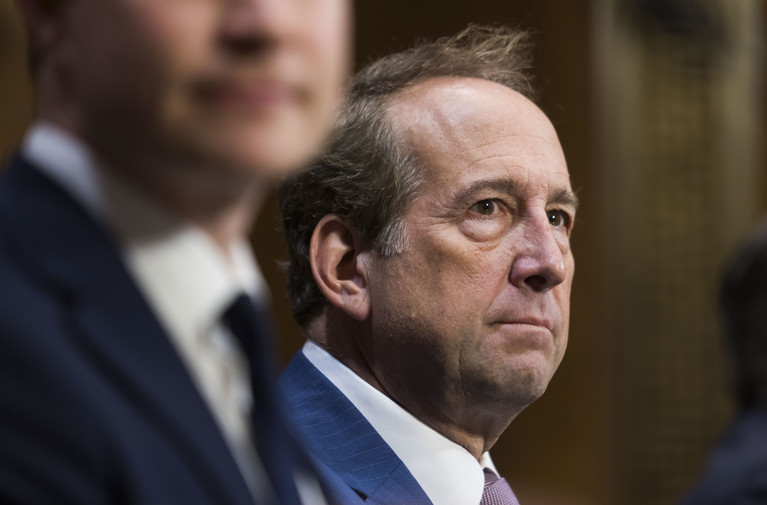New USPTO Director to Take Control of Review Processes From Appeal Board
Envision pouring millions into a groundbreaking invention, securing a patent after rigorous USPTO scrutiny, only to watch it shredded in a post-grant review that feels more like a rubber stamp than a fair fight. That’s the frustration echoing through boardrooms and labs nationwide—until now. In a seismic shift, the U.S. Patent and Trademark Office’s new director is yanking the reins on these challenges, aiming to shield innovators from what he calls a “second bite at the apple” that’s eroded trust in America’s patent fortress.
On October 17, 2025, John Squires, freshly confirmed as USPTO Director under President Trump and a former chief intellectual property counsel at Goldman Sachs, dropped an “Open Letter to the Patent Community” titled “Bringing the USPTO Back to the Future.” Effective immediately—October 20—he’s reclaiming sole authority over whether the Patent Trial and Appeal Board (PTAB) institutes inter partes reviews (IPRs) and post-grant reviews (PGRs), processes born from the 2011 America Invents Act (AIA) to test patent validity. Previously delegated to PTAB panels since 2012, these gatekeeping calls will now flow through Squires personally, in consultation with at least three board judges, to enforce the AIA’s “reasonable likelihood” threshold more rigorously.
The move caps a whirlwind first month for Squires, Senate-confirmed in September after testifying on bolstering a “unitary patent system” for all inventors. It syncs with a Federal Register notice of proposed rulemaking that day, proposing bars on IPRs for patents already litigated in federal court, aiming to curb “serial challenges” and docket bloat. Squires lambasted the old setup for fostering “perceptions of self-incentivization,” where panels allegedly padded caseloads for metrics, hitting 74% institution rates in fiscal 2024—69% on tech patents—while invalidating claims at twice the district court clip.
Roots in Reform: From AIA Promise to PTAB Perils
The AIA birthed PTAB as a streamlined alternative to pricey litigation, letting challengers—like Big Tech fending off infringement suits—petition for reviews at $20,000-$30,000 a pop versus millions in court. But critics, including pharma giants and solo inventors, decried it as a “patent death squad,” with over 95% institution on referred cases eroding the presumption of validity for USPTO-granted rights. Squires’ letter nods to this backlash, arguing unchecked reviews “destabilize investment” by turning patents into “unreliable assets,” especially after examiners’ exhaustive scrutiny. Delegation to panels, he says, strayed from Congress’ blueprint vesting power in the politically accountable Director (AIA Sections 314(a) and 324).
This isn’t Squires’ solo act; it’s the latest in a Trump-era pivot. Since inauguration, discretionary denials spiked ninefold, signaling a pro-patent owner tilt to restore “quiet title” post-issuance. The proposed rules, open for comments until November 17, would further wall off IPRs from rehashing court-fought patents, echoing calls from the Heritage Foundation and inventor lobbies.
Voices from the Trenches: Cheers, Jeers, and Jitters
The patent bar’s buzzing with split-screen reactions. Patent attorney and 25-year veteran [author of LinkedIn post] hailed it as a “surgical correction” to “fundamental flaws,” praising the separation of institution from trials to nix bias vibes and accountability gaps. “This restores congressional intent, filtering weak petitions and freeing PTAB for merit-worthy fights,” they wrote, predicting fewer frivolous hits on small inventors and a renaissance in R&D confidence.
Skeptics, though, smell centralization risks. Patently-O’s Dennis Crouch warned of “unexplained and unreviewable” Director fiat, forecasting a “major downturn” in IPR filings as challengers balk at opaque hurdles—potentially tilting the field too far for owners and choking tech’s defensive tool. On X, IP fray @ipfray dubbed it a “major development” via their AIA memo breakdown, urging practitioners to brace for “strategic shifts” like beefier petitions. Pharma heavyweights like PhRMA stayed mum, but past gripes suggest quiet applause; tech titans like Google, IPR’s top users, may lobby against via comments.
Stakes for Silicon Valley, Startups, and Everyday Innovators
For U.S. readers, this rewires a $500 billion IP economy where patents fuel 10 million jobs. Tech firms, leaning on IPRs to nix “patent trolls,” could face pricier defenses—hiking gadget costs amid inflation—while pharma wins breathing room for blockbusters, staving off generics and preserving $1.3 trillion in annual drug sales. Startups? A boon for bootstrappers dodging serial attacks, but venture capitalists fret over “unpredictable” gates slowing deal flow in AI and biotech hotspots like Boston and Austin.
Politically, it’s red meat for Trump’s “America First” innovation push, countering Biden-era examiner backlogs; technologically, it spotlights AI’s double-edge—tools aiding petitions but now under sterner scrutiny. Lifestyle ripple? From garage tinkerers to Fortune 500 labs, stronger patents mean bolder risks, potentially sparking the next iPhone or mRNA miracle without fear of forum-shopping demise.
As comments roll in and rules finalize, Squires’ gambit could redefine PTAB as a scalpel, not sledgehammer—slashing institutions below 50% and rebuilding faith in the patent bargain. Whether it ignites a golden age or chills challenges hinges on execution, but one thing’s clear: The Director’s desk just became ground zero for America’s inventive soul.
By Sam Michael
Follow and subscribe to us today for push notifications on the latest IP reforms and innovation battles—stay patented!
USPTO Director John Squires, IPR institution decisions, PTAB authority change, America Invents Act reforms, patent review overhaul 2025, inter partes review PTAB, post-grant review changes, USPTO proposed rules, patent validity challenges, innovation policy Trump administration
